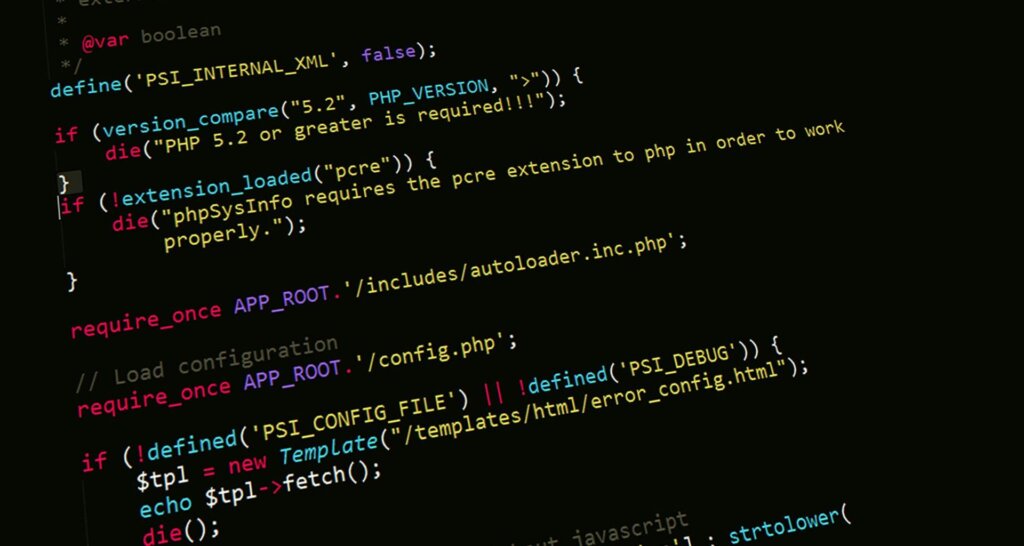Most Recent Jobs
Front End Application Developer
Cleveland, OH 44115 • Remote $78,247 – $99,264 a year – Full-time
Front-End Engineer, AWS Marketplace- job post
Seattle, WA $129,300 – $223,600 a year – Full-time
Front-End Developer- job post
4701 Limestone Road, Wilmington, DE 19808 $55,000 – $60,000 a year – Full-time
Contents
Everything You Need to Know About Front End Web Developer Jobs

Importance of Front-End Web Development
Front-end web development is a crucial aspect of modern web development, as it directly influences how users interact with websites and web applications. The front-end, or client side, is where the visual elements of a website come to life, enabling users to engage with content through intuitive and responsive designs. In today’s digital landscape, where user experience (UX) is paramount, front-end developers play a vital role in ensuring that websites are not only visually appealing but also functional and accessible across various devices. This importance has made front-end development a highly sought-after skill in the tech industry, driving demand for skilled professionals in this field.
Purpose of the Post
The purpose of this post is to provide a comprehensive overview of front-end web developer jobs. Whether you’re considering a career in front-end development, looking to advance your skills, or simply curious about what this role entails, this post will guide you through all the essential aspects. We will explore what a front-end web developer does, the key skills and qualifications required, job responsibilities, and the various types of job opportunities available in this field. Additionally, we’ll cover salary expectations, career growth potential, and common challenges faced by front-end developers. By the end of this post, you will have a clear understanding of what it takes to succeed in a front-end web developer job and how to navigate the job market effectively.
What is a Front End Web Developer?
Role Definition
A front-end web developer is responsible for implementing the visual and interactive aspects of a website or web application. They translate design mockups and wireframes into functional code, ensuring that users can interact with a site as intended. This role focuses on the client side of web development, meaning everything the user sees and interacts with directly is created by front-end developers. They use technologies like HTML, CSS, and JavaScript to build layouts, style pages, and add dynamic elements that enhance user experience.
Core Responsibilities
- Building User Interfaces (UI): Creating visually appealing and user-friendly interfaces that align with the design specifications.
- Ensuring Cross-Browser Compatibility: Making sure that the website or application functions well across different web browsers.
- Responsive Design: Developing layouts that adapt to different screen sizes, ensuring a seamless experience on mobile, tablet, and desktop devices.
- Optimizing Performance: Enhancing the speed and efficiency of web pages by optimizing images, scripts, and other resources.
- Debugging and Troubleshooting: Identifying and fixing issues that arise during the development process, ensuring the final product is bug-free.
- Collaborating with Designers and Back-End Developers: Working closely with design teams to implement visual designs and with back-end developers to integrate server-side logic with the front-end.
Significance in the Web Development Process
Front-end developers are integral to the web development process, serving as the bridge between design and back-end functionality. Their work directly impacts the user experience, which is crucial for user engagement, satisfaction, and retention. A well-executed front-end ensures that users can easily navigate the site, access information, and complete tasks without frustration. As the first point of contact between the user and the application, the front-end must be both aesthetically pleasing and functional, making the role of a front-end developer essential in delivering successful web projects.

Key Skills and Qualifications
Essential Technical Skills
To excel as a front-end web developer, mastery of several key technical skills is essential:
· HTML (HyperText Markup Language): The backbone of any web page, HTML structures the content and ensures that it is displayed correctly across browsers.
· CSS (Cascading Style Sheets): CSS is used to style the content structured by HTML, allowing developers to create visually appealing and consistent designs across different devices.
· JavaScript: A powerful scripting language that adds interactivity and dynamic elements to web pages, making them more engaging and functional.
· Frameworks and Libraries: Knowledge of popular frameworks like React, Angular, or Vue.js is crucial, as they simplify complex coding tasks and enhance the development process. Libraries such as jQuery and Bootstrap are also widely used to speed up development.
· Version Control (e.g., Git): Proficiency in version control systems is important for tracking changes, collaborating with other developers, and managing codebases effectively.
· Responsive Design Principles: Understanding how to create layouts that adapt to different screen sizes is critical in today’s mobile-first world.
· Cross-Browser Compatibility: Ensuring that websites function correctly across all major web browsers is a key part of the role.
· Performance Optimization: Techniques for optimizing the speed and efficiency of web pages, such as minimizing file sizes, reducing server requests, and leveraging caching.
“If you’re looking to enhance your JavaScript or React skills, consider hiring a professional cost effective tutor. This can provide personalized learning that accelerates your growth.“
Educational Background and Pathways
While a formal education in computer science or a related field can be beneficial, it is not always required to become a front-end web developer. There are multiple educational pathways to consider:
- Bachelor’s Degree: Many front-end developers have a degree in computer science, software engineering, or a related field. This formal education provides a strong foundation in programming and web development principles.
- Coding Bootcamps: Intensive coding bootcamps offer an accelerated path to becoming a front-end developer. These programs typically focus on practical skills and hands-on projects, preparing students for the job market in a matter of months.
- Self-Learning: Many successful front-end developers are self-taught, utilizing online resources such as tutorials, documentation, and courses from platforms like Udemy, Coursera, and FreeCodeCamp to build their skills.
- Certifications: Earning certifications in specific technologies (e.g., JavaScript frameworks, responsive design) can enhance your credentials and make you more attractive to employers.
Important Soft Skills
In addition to technical expertise, front-end developers need to possess several soft skills to thrive in their roles:
- Problem-Solving: The ability to troubleshoot issues, debug code, and find creative solutions is crucial in front-end development.
- Attention to Detail: Precision is key when writing code, as even small errors can lead to significant issues in how a site functions or appears.
- Communication: Effective communication skills are essential for collaborating with designers, back-end developers, and other stakeholders. Explaining technical concepts to non-technical team members is a common requirement.
- Time Management: Balancing multiple tasks, meeting deadlines, and managing project timelines are all important aspects of the job.
- Adaptability: The web development landscape is constantly evolving, so front-end developers need to stay up-to-date with the latest trends, tools, and technologies.
- Creativity: While following design guidelines, developers often need to make aesthetic decisions that enhance the user experience and ensure the site is visually appealing.
These technical and soft skills together form the foundation of a successful front-end web developer, enabling them to create high-quality, user-friendly web experiences.
Building your own projects is essential for mastering front-end development. Use a reliable and cost effective host like Hostinger to deploy your sites and showcase your work. Get it with up to 90% discounted price

Job Description and Responsibilities
Sample Job Description
A typical front-end web developer job description might include the following:
Job Title: Front-End Web Developer
Location: [City, State] (or Remote)
Company: [Company Name]
Job Type: Full-Time (or Part-Time/Contract/Freelance)
Salary: [Salary Range]
Responsibilities:
- Develop and maintain user interfaces using HTML, CSS, and JavaScript.
- Collaborate with designers to implement responsive and adaptive designs.
- Optimize web pages for speed and scalability.
- Ensure cross-browser compatibility and troubleshoot issues across different browsers and devices.
- Work closely with back-end developers to integrate front-end and back-end functionalities.
- Participate in code reviews and contribute to the continuous improvement of front-end development practices.
- Stay updated with the latest trends, tools, and best practices in front-end development.
Requirements:
- Proficiency in HTML, CSS, and JavaScript.
- Experience with front-end frameworks like React, Angular, or Vue.js.
- Knowledge of version control systems (e.g., Git).
- Familiarity with responsive design principles and cross-browser compatibility.
- Strong problem-solving skills and attention to detail.
- Ability to work collaboratively in a team environment.
- [Optional] Experience with tools like Photoshop, Figma, or other design software.
- [Optional] Bachelor’s degree in computer science or a related field, or equivalent experience.
Common Daily Tasks
The daily tasks of a front-end web developer typically include:
- Writing and Editing Code: Creating and refining HTML, CSS, and JavaScript code to build the front-end of websites or web applications.
- Collaborating with Designers: Working closely with UI/UX designers to translate design concepts into functional web pages.
- Testing and Debugging: Identifying and fixing issues in the code to ensure that websites function correctly across all devices and browsers.
- Attending Meetings: Participating in daily stand-ups or project meetings to discuss progress, address challenges, and plan upcoming tasks.
- Code Reviews: Reviewing code written by colleagues to ensure it meets quality standards and follows best practices.
- Learning and Researching: Staying up-to-date with the latest web development trends, tools, and techniques by reading articles, watching tutorials, or experimenting with new technologies.
Role in Project Development
In the web development process, front-end developers play a pivotal role, particularly in the following stages:
- Design Implementation: Once the design phase is complete, front-end developers are responsible for bringing the design to life. This involves translating wireframes, mockups, or prototypes into functional web pages.
- User Experience Optimization: Front-end developers ensure that the site is easy to use, accessible, and provides a seamless experience across devices. This often includes optimizing load times, ensuring navigation is intuitive, and making sure the interface is responsive.
- Integration with Back-End: Front-end developers work closely with back-end developers to connect the user interface with server-side logic. This may involve integrating APIs, handling form submissions, or managing data interactions.
- Testing and Quality Assurance: Before a project goes live, front-end developers test the website thoroughly to identify and fix any issues. This ensures that the final product is polished and ready for users.
- Ongoing Maintenance: After the launch, front-end developers often continue to maintain the website, making updates, fixing bugs, and implementing new features as needed.
By fulfilling these responsibilities, front-end developers ensure that websites are not only visually appealing but also functional, user-friendly, and aligned with the project’s goals.

Types of Front End Web Developer Jobs
Entry-Level Positions
Entry-level front-end web developer positions are designed for individuals who are new to the field or have minimal professional experience. These roles typically focus on:
- Basic Front-End Tasks: Writing clean, simple HTML, CSS, and JavaScript code for small-scale projects.
- Assisting Senior Developers: Supporting more experienced developers in larger projects, handling tasks like bug fixes, basic layout adjustments, and styling.
- Learning on the Job: Gaining experience by working on real-world projects and gradually taking on more responsibility as skills improve.
- Common Job Titles: Front-End Developer Intern, Junior Front-End Developer, Web Development Trainee.
Many roles require basic knowledge of web hosting and deployment. Start practicing with an affordable and user-friendly platform like Hostinger. Get it with up to 90% Discounted price
Junior Developer Roles
Junior front-end developers typically have some experience and are capable of handling more complex projects. They work under the guidance of senior developers but have more autonomy than entry-level positions. Their responsibilities include:
- Building Responsive Websites: Developing user-friendly and responsive layouts for websites and applications.
- Implementing Designs: Collaborating with designers to bring their visions to life, ensuring consistency across devices and platforms.
- Fixing Bugs and Debugging: Identifying and resolving technical issues to ensure smooth functionality.
- Collaborating with Teams: Working with cross-functional teams, including back-end developers and project managers, to deliver projects.
- Common Job Titles: Junior Front-End Developer, Front-End Web Developer.
Remote Job Opportunities
With the rise of remote work, many companies now offer remote front-end web developer positions. These jobs allow developers to work from anywhere, offering flexibility and access to a wider range of opportunities. Remote developers are typically responsible for:
- Independent Development: Managing their own time and tasks while working independently on front-end projects.
- Virtual Collaboration: Utilizing online tools to collaborate with team members and attend meetings remotely.
- Project-Based Work: Often working on project-based assignments, which may range from small freelance gigs to long-term employment contracts.
- Common Job Titles: Remote Front-End Developer, Remote Junior Front-End Developer, Freelance Front-End Developer.
Freelance and Contract Positions
Freelance and contract front-end web developer positions are ideal for those who prefer flexibility and variety in their work. Freelancers work on a project-by-project basis, often juggling multiple clients. Freelance front-end developers are responsible for:
- Project Management: Handling all aspects of a project, from communication with the client to delivering the final product.
- Diverse Project Work: Working on a variety of tasks, ranging from building websites to optimizing user interfaces for clients in different industries.
- Client Relations: Managing relationships with clients, including pitching ideas, negotiating contracts, and ensuring satisfaction with the work delivered.
- Common Job Titles: Freelance Front-End Developer, Contract Front-End Developer, Front-End Developer Consultant.
These different types of front-end web developer jobs provide a range of opportunities for individuals at various stages of their careers, whether they are just starting out, seeking flexibility, or looking for steady, long-term roles.

How to Find a Front End Web Developer Job
Effective Job Search Strategies
Finding a front-end web developer job requires a strategic approach. Here are some effective strategies to increase your chances of landing the right position:
- Tailor Your Resume and Portfolio: Customize your resume for each application, highlighting relevant skills, experiences, and projects. A strong portfolio showcasing your best work is essential for standing out to employers.
- Apply to Targeted Job Listings: Focus on jobs that match your skills and career goals. Avoid the “spray and pray” method of applying to every job available; instead, be selective and thoughtful in your applications.
- Leverage Keywords in Applications: Use job-related keywords (e.g., HTML, CSS, JavaScript, React) in your resume and cover letter to pass through Applicant Tracking Systems (ATS) and catch the attention of hiring managers.
- Prepare for Technical Interviews: Practice coding challenges and be ready to discuss your projects in detail. Many companies use technical interviews to assess your problem-solving skills and coding ability.
- Stay Consistent and Organized: Keep track of the jobs you’ve applied to, follow up when appropriate, and stay consistent in your search. Regularly updating your LinkedIn profile and engaging with relevant content can also help attract recruiters.
An optimized resume and cover letter can make a huge difference. You can find experienced resume writers on Fiverr who specialize in tech roles to help you stand out.
Top Job Boards and Platforms
Certain platforms are particularly effective for finding front-end web developer jobs. Here are some of the best options:
- Fiverr: A leading platform for freelancers offering a wide range of services, including graphic design, writing, and web development. Fiverr allows you to create a profile, showcase your skills, and connect with clients worldwide for various freelance projects.
- LinkedIn: One of the most popular platforms for professional networking, LinkedIn also offers a wide range of job listings. You can apply directly through the site and connect with potential employers.
- Indeed: A comprehensive job search engine that aggregates listings from multiple sources. You can filter by job title, location, experience level, and more.
- Glassdoor: Known for company reviews and salary insights, Glassdoor also provides job listings where you can apply directly and gain insights into the company culture before applying.
- Upwork: Ideal for freelance and contract front-end web development jobs. Upwork allows you to build a profile, bid on projects, and manage client relationships directly through the platform.
- GitHub Jobs: A niche job board specifically for developers. It’s a great place to find technical positions, including front-end web development roles.
- AngelList: Focused on startups, AngelList is perfect for those interested in working with emerging companies. It allows you to apply directly and often offers remote opportunities.
Networking for Job Opportunities
Networking is a powerful tool for uncovering job opportunities that may not be advertised publicly. Here’s how to build and leverage your professional network:
- Attend Industry Events: Participate in local meetups, workshops, and conferences related to web development. These events provide opportunities to connect with other developers, recruiters, and potential employers.
- Join Online Communities: Engage in online forums, social media groups, and platforms like Reddit or Stack Overflow. These communities often share job openings, and participating actively can help you build a reputation.
- Connect with Alumni Networks: If you attended a coding bootcamp or university, reach out to your alumni network. Alumni often have insider information about job openings and can provide referrals.
- Ask for Informational Interviews: Request informational interviews with professionals in the industry. This can help you learn more about potential employers and get your name in front of hiring managers.
- Utilize LinkedIn: Connect with professionals in your field, endorse skills, and engage with content relevant to front-end development. Posting your own projects and contributions can also attract attention from recruiters.
By combining these job search strategies, utilizing top job platforms, and leveraging your network, you can significantly enhance your chances of finding the ideal front-end web developer job.
Building your own Protfolio is essential for mastering front-end development. Use a reliable and cost effective host like Hostinger to deploy your sites and showcase your work. Get it with up to 90% discounted price

Salary Expectations
Average Salaries Based on Experience
The salary of a front-end web developer can vary significantly based on experience level, location, and the specific skills they bring to the table. Here’s a general breakdown:
- Entry-Level Front-End Developers: Those just starting in the field can expect to earn between $50,000 to $70,000 per year. These roles typically require a basic understanding of HTML, CSS, and JavaScript, along with a willingness to learn and grow on the job.
- Junior Front-End Developers: With 1-3 years of experience, salaries range from $65,000 to $85,000 annually. Junior developers usually have a solid foundation in front-end technologies and may start taking on more complex projects and responsibilities.
- Mid-Level Front-End Developers: Professionals with 3-5 years of experience can command salaries ranging from $80,000 to $100,000. They are often responsible for leading small projects, mentoring junior developers, and have expertise in modern frameworks like React or Angular.
- Senior Front-End Developers: With 5+ years of experience, senior developers typically earn between $100,000 to $130,000 or more. They play a crucial role in project leadership, architectural decisions, and often work closely with other teams to ensure the success of complex web applications.
High-Paying Companies
Certain companies are known for offering particularly competitive salaries to front-end web developers. These companies often seek out top talent and are willing to pay a premium for it:
- Google: Known for offering some of the highest salaries in the tech industry, front-end developers at Google can earn upwards of $120,000 to $160,000 annually, with additional bonuses and stock options.
- Facebook (Meta): Facebook offers lucrative packages for front-end developers, with salaries typically ranging from $115,000 to $150,000, along with performance bonuses and other benefits.
- Amazon: Front-end developers at Amazon can expect to earn between $110,000 and $140,000. Amazon also provides opportunities for career growth and advancement.
- Apple: Apple values design and user experience, and front-end developers can earn between $110,000 and $140,000, with additional stock options and benefits.
- Startups: While startups may not always offer the highest base salaries, they often provide equity or stock options, which can be valuable in the long run. Salary ranges vary, but can be competitive, particularly in fast-growing startups.
Future Salary Trends in the Industry
As technology continues to evolve, so do the salary trends for front-end web developers. Here are some predictions for the future:
- Increasing Demand for Specialized Skills: Developers with expertise in specific frameworks (e.g., React, Vue.js) or experience in UX/UI design are likely to see higher salary offers as these skills become more in demand.
- Remote Work and Global Opportunities: With the rise of remote work, developers have access to a global job market, potentially driving up salaries as companies compete for top talent regardless of location.
- Focus on Performance and Optimization: As web performance becomes increasingly important, developers who can optimize websites for speed and scalability will be highly sought after, potentially leading to higher salaries.
- Continuous Learning as a Salary Booster: Developers who stay updated with the latest technologies and continuously upgrade their skills are likely to command higher salaries over time, as they bring more value to their employers.
Understanding salary expectations can help you negotiate better job offers and make informed decisions about your career path as a front-end web developer.

Career Growth and Development
Advancement Opportunities
As a front-end web developer, there are numerous pathways for career advancement. Here are some of the key opportunities:
· Senior Front-End Developer: After gaining a few years of experience, many developers progress to senior roles. Senior developers take on more responsibility, including leading projects, mentoring junior developers, and making key architectural decisions.
· Lead Developer or Technical Lead: In this role, developers oversee entire teams or projects, coordinating with other departments such as back-end developers, designers, and product managers to ensure the successful delivery of web applications.
· Front-End Architect: This role involves designing the overall structure of web applications and establishing best practices for the development team. Architects focus on scalability, performance, and maintainability of the codebase.
· Full-Stack Developer: Some front-end developers choose to expand their skill set to include back-end technologies, becoming full-stack developers. This role offers a broader range of responsibilities and often higher salaries.
· Engineering Manager: For those interested in management, transitioning to an engineering manager role is an option. This role focuses on overseeing teams, managing project timelines, and ensuring that technical goals align with business objectives.
Consider taking a specialized course or getting one-on-one mentorship from experienced developers. This can help you stay updated with the latest industry trends.
Continued Learning and Skill Development
The tech industry is constantly evolving, making continuous learning essential for career growth. Here’s how to stay ahead:
- Stay Updated with Trends: Follow industry blogs, attend webinars, and participate in conferences to stay informed about the latest tools, frameworks, and best practices in front-end development.
- Expand Your Skill Set: Learning new programming languages, frameworks, or tools can make you more versatile and valuable to employers. For example, mastering React, Vue.js, or Angular can open up more job opportunities.
- Contribute to Open Source: Engaging in open-source projects not only helps you practice your skills but also builds your portfolio and reputation in the developer community.
- Join Coding Challenges: Platforms like LeetCode, HackerRank, and Codewars offer coding challenges that can help sharpen your problem-solving skills and prepare you for technical interviews.
- Pair Programming and Code Reviews: Collaborating with other developers through pair programming or participating in code reviews can help you learn new techniques and improve your coding style.
Certifications and Courses
Earning certifications and taking courses can provide a structured way to learn new skills and validate your expertise. Here are some valuable options:
- Front-End Developer Certifications: Certifications like the Certified Web Developer (CWDS) or certifications from platforms like Coursera, edX, and freeCodeCamp can boost your resume and demonstrate your commitment to professional development.
- Specialized Courses: Enroll in courses that focus on specific technologies or skills, such as React, CSS Grid, or JavaScript ES6. Many online platforms, including Udemy, Pluralsight, and LinkedIn Learning, offer targeted courses.
- Bootcamps: Coding bootcamps are intensive programs that teach you the necessary skills to become a front-end developer in a short period. They often include job placement assistance and networking opportunities.
- Master’s Degree or Advanced Studies: For those interested in academic advancement, pursuing a master’s degree in Computer Science or a related field can provide a deeper understanding of software development and open doors to more advanced roles.
Investing in your career growth through continued learning and skill development will not only enhance your job prospects but also position you for long-term success in the rapidly changing field of front-end web development.

Common Challenges and How to Overcome Them
Technical Challenges in the Role
Front-end web developers often face various technical challenges, including:
- Cross-Browser Compatibility: Ensuring that web applications work consistently across different browsers and devices can be complex. To overcome this challenge:
- Use Responsive Design: Implement responsive design principles to ensure your website adapts to different screen sizes.
- Test Extensively: Regularly test your web applications on multiple browsers and devices to identify and fix compatibility issues.
- Leverage Tools and Libraries: Use tools like BrowserStack or tools integrated into your development environment to streamline cross-browser testing.
- Performance Optimization: Balancing functionality and performance can be tricky. To improve performance:
- Optimize Assets: Minimize and compress CSS, JavaScript, and image files to reduce load times.
- Implement Lazy Loading: Load images and other resources only when they are needed to speed up initial page load.
- Use Efficient Code Practices: Write clean, efficient code and avoid unnecessary complexity.
- Keeping Up with Evolving Technologies: The rapid pace of technological change can be overwhelming. To stay current:
- Adopt Modern Practices: Embrace new frameworks, libraries, and tools that improve development efficiency and user experience.
- Participate in Continuous Learning: Regularly engage in learning opportunities, such as online courses, webinars, and developer communities.
Struggling with debugging a tricky code? Hiring an exprienced freelance developer for a quick consultation on Fiverr could save you hours and enhance your understanding.
Managing Work-Life Balance
Maintaining a healthy work-life balance is crucial for long-term career satisfaction and personal well-being. Here are strategies to manage it effectively:
- Set Boundaries: Clearly define your work hours and stick to them. Avoid checking work emails or taking calls outside of these hours.
- Prioritize Tasks: Use project management tools and techniques to prioritize tasks and manage your workload effectively, avoiding last-minute rushes and burnout.
- Take Breaks: Regular breaks during work hours can boost productivity and prevent mental fatigue. Implement techniques like the Pomodoro Technique to manage work intervals and rest periods.
- Seek Support: If you’re feeling overwhelmed, communicate with your manager or team. Request support or additional resources if necessary to manage your workload better.
- Engage in Personal Interests: Dedicate time to hobbies, exercise, and social activities outside of work to maintain a balanced lifestyle.
Staying Updated with Industry Changes
Keeping up with the latest trends and technologies in front-end development is essential but can be challenging. Here’s how to stay informed:
- Follow Industry Leaders: Subscribe to blogs, newsletters, and social media accounts of leading developers and industry experts to get insights into the latest trends and best practices.
- Join Professional Communities: Participate in online forums, developer groups, and communities such as Stack Overflow, Reddit, and GitHub to exchange knowledge and stay informed.
- Attend Conferences and Meetups: Engage in industry conferences, webinars, and local meetups to learn about new technologies, tools, and techniques from peers and experts.
- Read Documentation and Updates: Regularly review documentation for the technologies and tools you use. Many frameworks and libraries release updates with new features and improvements.
- Experiment and Build Projects: Apply new technologies and techniques to personal or side projects. Practical experience is one of the best ways to understand and adapt to industry changes.
-
Addressing these common challenges proactively can help you maintain a successful and rewarding career in front-end web development. By staying adaptable, balancing your work and personal life, and continually updating your skills, you can navigate the complexities of the role effectively.

Is Front-End Web Development a Good Career Choice?
Pros of a Career in Front-End Development
- High Demand for Skills: Front-end development skills are in high demand across various industries. With businesses and organizations increasingly focusing on their online presence, skilled front-end developers are essential for creating engaging and user-friendly websites and applications.
- Creative and Diverse Work: Front-end development offers a creative outlet, allowing you to design and build visually appealing interfaces. The role involves working on a variety of projects, from e-commerce sites to interactive web applications, which keeps the work interesting and diverse.
- Good Earning Potential: Front-end developers typically enjoy competitive salaries. As you gain experience and specialize in high-demand technologies, you can command higher salaries and better compensation packages.
- Flexibility and Remote Work Opportunities: Many front-end development roles offer the flexibility to work remotely or on a freelance basis. This flexibility can lead to a better work-life balance and the ability to work from different locations.
- Opportunities for Career Growth: Front-end development offers clear pathways for career advancement, including roles such as senior developer, lead developer, or even moving into related areas like full-stack development or UX/UI design.
- Continuous Learning and Innovation: The field of front-end development is always evolving, with new technologies and frameworks emerging regularly. This constant innovation provides opportunities for continuous learning and professional growth.
Potential Drawbacks
- Rapidly Changing Technologies: The fast pace of technological change in front-end development can be challenging. Developers need to continuously learn and adapt to new tools, frameworks, and best practices, which can be demanding.
- Potential for Burnout: The pressure to meet tight deadlines, manage complex projects, and keep up with industry changes can lead to stress and burnout. Balancing multiple projects and maintaining a high standard of work can be overwhelming at times.
- High Competition: With the popularity of front-end development, the field can be competitive. Standing out among a large pool of applicants requires a strong portfolio, specialized skills, and continual professional development.
- Browser and Device Compatibility Issues: Ensuring that web applications work flawlessly across different browsers and devices can be complex and time-consuming. Developers need to tackle various compatibility issues and perform extensive testing.
- Client Expectations and Feedback: Working directly with clients or stakeholders can sometimes lead to conflicting expectations and frequent revisions. Managing client feedback and aligning it with technical constraints can be challenging.
Industry Demand and Future Outlook
The field of front-end web development is experiencing robust growth and offers a promising future. Here’s an overview of the industry demand and what to expect moving forward:
- Strong and Growing Demand: The demand for front-end web developers remains strong as businesses of all sizes continue to invest in their online presence. The proliferation of digital platforms, e-commerce, and mobile applications ensures that skilled front-end developers are needed to create and maintain high-quality user interfaces and experiences.
- Increased Focus on User Experience: As user expectations continue to rise, there is a growing emphasis on creating intuitive, responsive, and visually appealing web applications. Front-end developers who can design and implement seamless user experiences are highly sought after. Skills in UX/UI design, accessibility, and performance optimization are becoming increasingly important.
- Advancements in Technology: Emerging technologies such as Progressive Web Apps (PWAs), Single Page Applications (SPAs), and server-side rendering are shaping the future of front-end development. Developers who stay current with these technologies and incorporate them into their skill set will be well-positioned for future opportunities.
- Integration with Other Technologies: Front-end development is becoming more integrated with back-end technologies, data science, and artificial intelligence. Developers who understand full-stack development or have expertise in integrating front-end technologies with back-end services will have a competitive edge.
- Remote and Global Opportunities: The rise of remote work has expanded job opportunities for front-end developers beyond geographical boundaries. Companies are increasingly open to hiring talent from around the world, offering developers the chance to work with international teams and clients.
- Increased Specialization: As the field matures, there is a trend towards greater specialization within front-end development. Roles focusing on specific technologies, frameworks, or industries (e.g., e-commerce, mobile development) are becoming more common. This specialization can lead to niche opportunities and higher earning potential.
- Continued Learning and Adaptation: The rapid pace of technological change means that continuous learning will remain a critical component of a front-end developer’s career. Staying updated with new tools, frameworks, and best practices will be essential for long-term success and relevance in the field.
In summary, front-end web development can be a rewarding career choice with numerous benefits, including high demand for skills, creative work, and good earning potential. However, it also comes with its own set of challenges, such as keeping up with rapidly changing technologies and managing workload pressures. Weighing these pros and cons can help you determine if front-end development aligns with your career goals and personal preferences.
Conclusion
Summary of Key Points
- Role and Significance: Front-end web developers play a crucial role in creating engaging and user-friendly interfaces for websites and applications. Their work involves translating design concepts into functional web pages and ensuring a seamless user experience across various devices and browsers.
- Key Skills and Qualifications: Essential skills for front-end developers include proficiency in HTML, CSS, JavaScript, and various front-end frameworks like React, Angular, or Vue.js. A strong educational background in computer science or related fields, along with soft skills like problem-solving and communication, is also important.
- Job Description and Responsibilities: Front-end developers are responsible for implementing design and layout specifications, optimizing web performance, and troubleshooting issues. They work closely with designers, back-end developers, and stakeholders to deliver high-quality web applications.
- Types of Jobs: There are various job types available, including entry-level positions, junior developer roles, remote opportunities, and freelance or contract work. Each type offers different advantages and career prospects.
- Finding a Job: Effective job search strategies include utilizing job boards, networking, and leveraging platforms like Upwork for freelance opportunities. Building a strong portfolio and staying active in the developer community can also enhance job prospects.
- Salary Expectations: Front-end developers generally enjoy competitive salaries, which can vary based on experience, location, and the employing company. Future trends suggest continued growth in salaries as demand for skilled developers remains high.
- Career Growth and Development: Career advancement opportunities include roles such as senior developer, lead developer, or front-end architect. Continued learning through certifications, courses, and practical experience is key to career progression.
- Challenges: Common challenges include keeping up with rapidly evolving technologies, managing work-life balance, and addressing technical issues such as cross-browser compatibility. Proactive strategies can help overcome these challenges.
- Career Choice: Front-end web development is a rewarding career with high demand, creative opportunities, and good earning potential. While it comes with challenges, the benefits and growth prospects make it a compelling choice for many.
Call to Action: Starting Your Career
Building your own portfolio is essential for mastering front-end development. Use a reliable and cost effective host like Hostinger to deploy your sites and showcase your work.
If you’re inspired by the dynamic and creative world of front-end web development, now is the time to take the first step toward launching your career. Here’s how you can get started:
- Build a Strong Foundation: Start by learning the core technologies of front-end development—HTML, CSS, and JavaScript. There are numerous online resources, courses, and tutorials available to help you build your skills.
- Create a Portfolio: Build a portfolio showcasing your projects and skills. Include personal projects, contributions to open-source projects, or freelance work to demonstrate your abilities and creativity.
- Gain Practical Experience: Look for internships, freelance opportunities, or volunteer projects to gain hands-on experience. Real-world projects will help you apply your knowledge and build confidence.
- Network and Connect: Join developer communities, attend meetups, and participate in online forums to connect with other professionals. Networking can open doors to job opportunities and provide valuable insights into the industry.
- Stay Updated: Keep up with the latest trends and technologies in front-end development. Regularly read industry blogs, take advanced courses, and experiment with new tools and frameworks.
- Apply for Jobs: Start applying for front-end developer positions that match your skills and interests. Tailor your resume and cover letter to highlight your strengths and relevant experience.
By taking these steps, you’ll be well on your way to starting a successful career in front-end web development. Embrace the challenges, stay curious, and continue learning to thrive in this exciting and ever-evolving field.
FAQs
What is the typical salary for a front-end web developer?
The typical salary for a front-end web developer can vary widely based on factors such as experience, location, and the employing company. In general, entry-level positions may start around $50,000 to $70,000 per year, while more experienced developers can earn between $70,000 and $100,000 or more annually. Salaries can be higher in major tech hubs or at large tech companies, with senior developers and those with specialized skills potentially earning upwards of $120,000.
Can I become a front-end developer without a degree?
Yes, it is possible to become a front-end developer without a formal degree. Many successful front-end developers come from non-traditional backgrounds, including self-taught individuals, coding bootcamp graduates, and those who have completed online courses. The key to success in this field is building a strong portfolio of projects, gaining practical experience, and continuously learning and adapting to new technologies.
How long does it take to become a front-end developer?
The time it takes to become a front-end developer can vary depending on your learning path and commitment. For those pursuing a degree in computer science or a related field, it typically takes about four years. Coding bootcamps, which offer intensive, short-term training programs, usually last between 3 to 6 months. Self-learners who dedicate part-time or full-time effort to studying and practicing can generally expect to gain the necessary skills in about 6 to 12 months.
What are the best resources for learning front-end development?
There are numerous resources available for learning front-end development, including:
- Online Courses: Platforms like Coursera, Udemy, and edX offer comprehensive courses on front-end technologies. Popular courses include those on HTML, CSS, JavaScript, and frameworks like React and Angular.
- Coding Bootcamps: Bootcamps like General Assembly, Flatiron School, and Le Wagon provide immersive, hands-on training in front-end development over a few months.
- Tutorial Websites: Websites such as freeCodeCamp, Codecademy, and W3Schools offer interactive tutorials and projects to practice front-end development skills.
- Books: Books like “Eloquent JavaScript” by Marijn Haverbeke and “HTML and CSS: Design and Build Websites” by Jon Duckett are excellent for in-depth learning.
- Developer Communities: Joining forums and communities like Stack Overflow, Reddit’s r/webdev, and local meetups can provide support, networking opportunities, and additional learning resources.
By utilizing these resources and actively working on projects, you can effectively build and enhance your front-end development skills.
